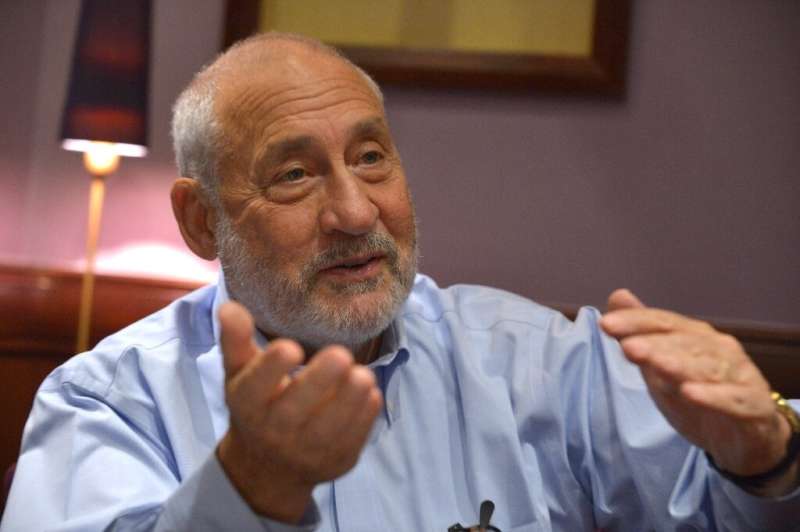'The system of multinationals' taxation, which is over 100 years old, is not suited for a 21st century globalised economy,' says Joseph Stiglitz.
Nobel economics prize laureate Joseph Stiglitz praised international backing for a global tax on corporations but said the minimum rate agreed by governments to battle "the dark side of globalisation" remains too low.
More than 130 nations have supported a plan to introduce a tax floor of at least 15 percent aimed at preventing countries from competing to offer the lowest rates in order to attract multinationals seeking to minimise their tax bills.
"It's a fantastic initiative," Stiglitz told AFP on the sidelines of the Ambrosetti Forum, an economics conference next to the scenic Lake Como in Cernobbio, Italy.
"The system of multinationals' taxation, which is over 100 years old, is not suited for a 21st century globalised economy," he said.
The global tax reform was agreed in negotiations led by the OECD and at a meeting of finance ministers of the Group of 20 wealthy and developing countries.
Final agreement is expected in the run-up to the G20 leaders' summit in Rome in October, with hopes the reforms can be in place by 2023.
But the American economist said 15 percent is "too low".
"I think it should be 25 percent, but politics is the art of compromise. I hope they do at least 20 percent," he said.
'Dark side of globalisation'
The United States, France and Germany are among the powers that have backed the imposition of a minimum rate to end a "race to the bottom".
But some nations are opposed to the plan, most notably Ireland, which has lured the likes of Apple and Google to its shores with a 12.5 percent rate.
"The system we have now is open to abuse and that is one of the reasons why the effective tax rate is so much lower than the official rate," Stiglitz said.
"The race to the bottom in which Luxembourg and Ireland played a role undermined global solidarity, it undermined the global economic system, it is part of the dark side of globalisation."
He said the agreement has also put an end to a "terrible tax war" that started under the Donald Trump presidency which slapped retaliatory tariffs on wine and other EU products in response to digital taxes imposed by France, Spain and others on US tech companies.
It "would have been a disaster if that kind of tax war proceeded," Stiglitz said.
Stiglitz vs Austerity
The 78-year-old academic, who was a senior economic adviser to President Bill Clinton in the 1990s, touched on another one of his favourite bugbears: austerity.
Stiglitz warned that the European Union should not return to its belt-tightening ways after the bloc rolled out a massive, 750-billion-euro ($890 million) fund to bring its 27 members out of their coronavirus-induced economic crisis.
"Europe came together and did the 750 billion European Recovery Fund which was the kind of thing that they should have done during the euro crisis in 2010," he told AFP.
"They provided the money without the austerity conditionalities they did in 2010," Stiglitz said.
During the eurozone debt crisis, European leaders imposed austerity measures on Greece, Ireland, Portugal and Cyprus in return for bailouts.
The EU has dished out the first tranche of the rescue fund over the summer.
"But my impression is that there is not a high level of trust to get the second tranche," Stiglitz said.
He said it was a "good thing" that conditions were not set to get the first batch.
"They gave some money because of the urgency," he said.
"But if they fall back in the old way of being excessively tight on the conditionality and not give the second tranche because they will say 'you didn't do this or that', some of the old problems could re-arise."
With German Chancellor Angela Merkel—an austerity champion—bowing out, "maybe the new German government will also be more flexible", the economist said.
But, he added, "That's still an open question."
© 2021 AFP























